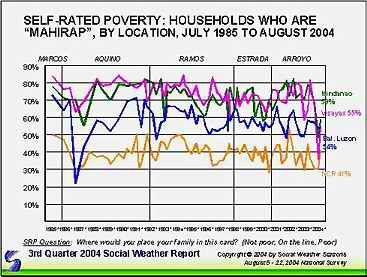There are many biologic theories about hunger. These are some of the well-known theories:
If you ask me, hunger is initiated by a combination of the theories above. I don't think only one theory biologically explains why we feel hungry.
- Stomach Contraction Theory - proposed by Cannon and Washburn, and was published in Introduction to Psychology: Exploration and Application by Coon in 1995. Simply put, it states that we feel hungry when our stomach contracts.
- Glucose Theory - states that hunger is initiated when blood glucose levels become lower than normal. This theory was proposed by Bash in the 1994 textbook, Human Motivation by Franken.
- Insulin Theory - states that hunger is initiated with sudden increases of insulin levels in our bodies; from Heller and Hellers 1991 publication, The Carbohydrate Addict's Diet.
- Fatty Acid Theory - states that activation of fatty acid receptors in our bodies triggers hunger; from the 1994 textbook, Human Motivation by Franken.
- Heat Production Theory - states that hunger starts when our body temperature drops, and when it rises, the hunger decreases; this theory tries to explain that why people eat more during winter; again, from the 1994 textbook, Human Motivation by Franken.
 The current focus on hunger has been brought about by the recent Social Weather Survey (SWS) which showed an awesome 15.1 percent of household heads saying that their families had experienced hunger, at least once in the last 3 months. In simple terms, that means 1 out of every 7 people surveyed by SWS had been hungry. From the SWS table on the left, you can see that hunger is prevalent in both Mindanao and the National Capital Region.
The current focus on hunger has been brought about by the recent Social Weather Survey (SWS) which showed an awesome 15.1 percent of household heads saying that their families had experienced hunger, at least once in the last 3 months. In simple terms, that means 1 out of every 7 people surveyed by SWS had been hungry. From the SWS table on the left, you can see that hunger is prevalent in both Mindanao and the National Capital Region.This report comes at a time when we have just been depressed by the UP economic professors report on the fiscal crisis, which has stirred a hornet's nest and evoked reactions ranging from the initiation of a heroic Bayanihan Fund to chasing corrupt and dishonest government and military officials who are insensitive enough to dip their dirty fingers on funds that aren't theirs.
Hunger translates to a lot of things: malnutrition, insanity, rising crime rates, more brain drain, more protest rallies, and more sadness at a time when the Filipino countdown to Christmas has started. As of today, it is 88 more days before a bleak Christmas.
How do we cope?
Aside from the free lugao stands in Quiapo, and the proposed food coupons by the government, I've seen hungry Filipinos cope by:
It is really pathetic.
- eating once a day or once every two days
- using condiments like salt, soy sauce, fish sauce, vinegar, and ketchup as viands
- buying noodles or mami and mixing them with rice
- foraging food leftovers from garbage bins of restaurants and fastfood establishments
- sniffing rugby or solvents to dispel hunger pangs
- beg for food directly from commuters and pedestrians
Adding insult to injury probably is the Health Secretary's tactless comment that:
True enough, you can witness the seething annoyance of Sassy's commenters when she posted about this yesterday. While I agree that the tactless Health Secretary is correct in his statement, his timing is a disaster. You don't say those things at a time like this."The SWS survey showing people eat only once a day could be attributed to the economy. Our economy is bad and people have no jobs"
In 1989, Frederick H. Buttel and Laura T. Raynolds, both Cornell sociologists, did a detailed study of population growth, food consumption, and other variables in 93 third world countries, and found no evidence that rapid population growth causes hunger. The results of their study found that:
Hunger has always been a serious problem. We need not be reminded that "24,000 people per day" or "8.8 million per year die from hunger or related causes," or that "chronic hunger causes stunted growth, poor vision, listlessness, and susceptibility to disease." We know that already."What they did find was that the populations of poorer countries, and those countries where the poorest 20 percent of the population earned a smaller percentage of a nation's total income, had less to eat. In other words, poverty and inequality cause hunger." [Does "Overpopulation" Cause Hunger?].
Critics may deride soup kitchens and food coupons for those who starve but for me, anything that fills the stomach is good. We must feed the hungry in whatever way we can. Sure, sure, I know that teaching-them-how-to-fish is always better than giving them fish, but they have been sufferring for a long time now. They are already at their ropes' end.
Feed the hungry now and discourage the insensitive profligacy of officials who receive hundreds of thousands of pesos monthly doing nothing but talk and try to make themselves feel important.
0 reactions:
Post a Comment